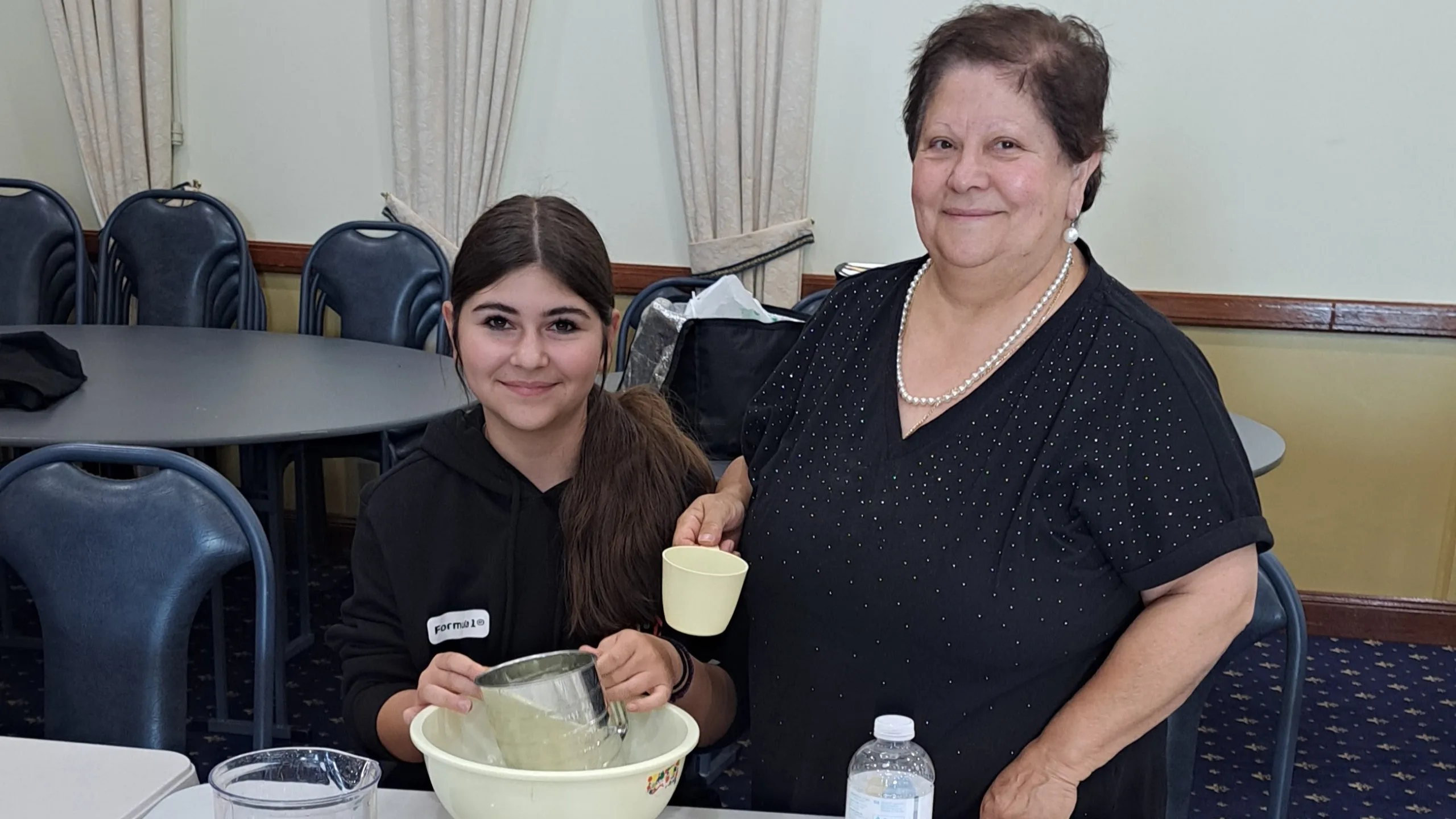Devout followers of the Greek Orthodox faith will attend a special church service known as ‘Psihosavato’ today to remember loved ones who have passed.
I attended a ‘prosphoro’ making session last year at my local Adelaide church for The Greek Herald.
For as long as I can remember, my mum Fotini has kept track of ‘Psihosavata’ (Saturday of the Souls) and would make prosphora to take to church. She would tell me that on those days the souls of the departed come back to visit us and that it was important to make an offering in the form of a prosphoro to honour the memory of people we have lost.
This ‘Psihosavato’ is the first one of the year. Another three are held before Orthodox Easter and one afterwards.
On this day, parishioners can take a prosphoro (bread) or kolyva (boiled wheat which symbolises eternal life) to their local church. Both the prosphoro and kolyva are shared in memorial services for ‘Psihosavata.’
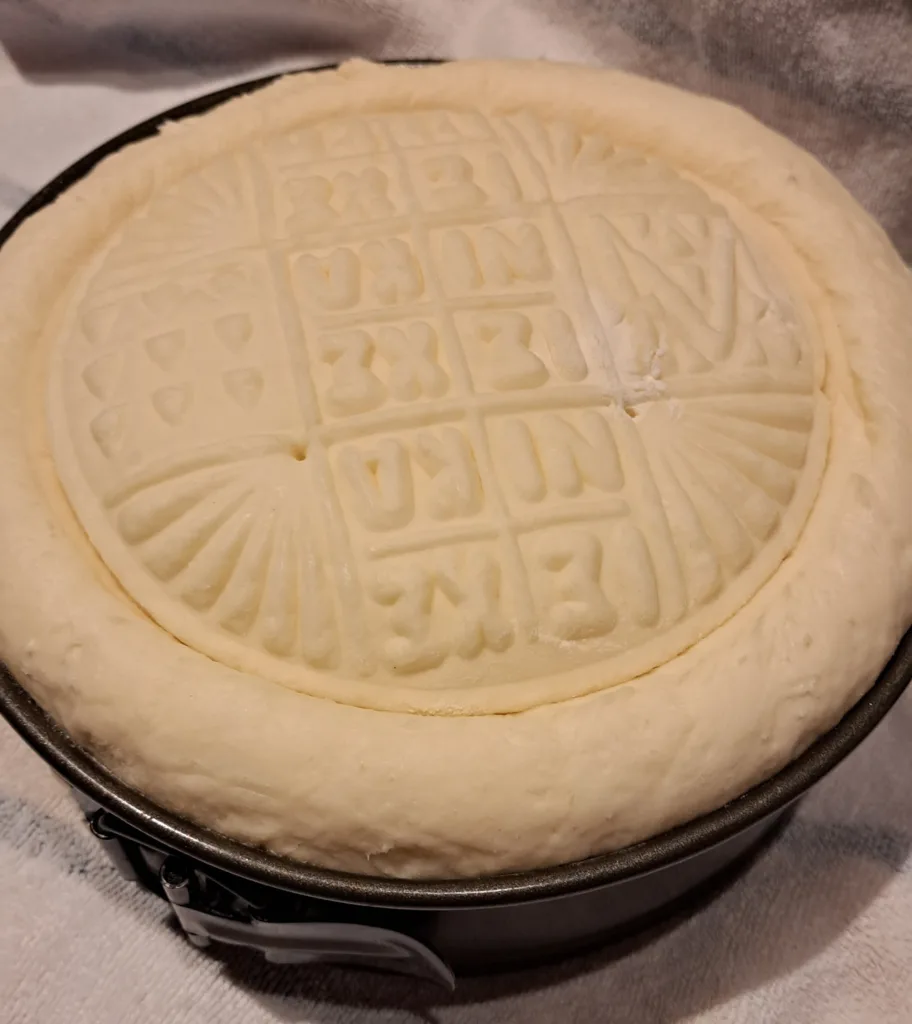
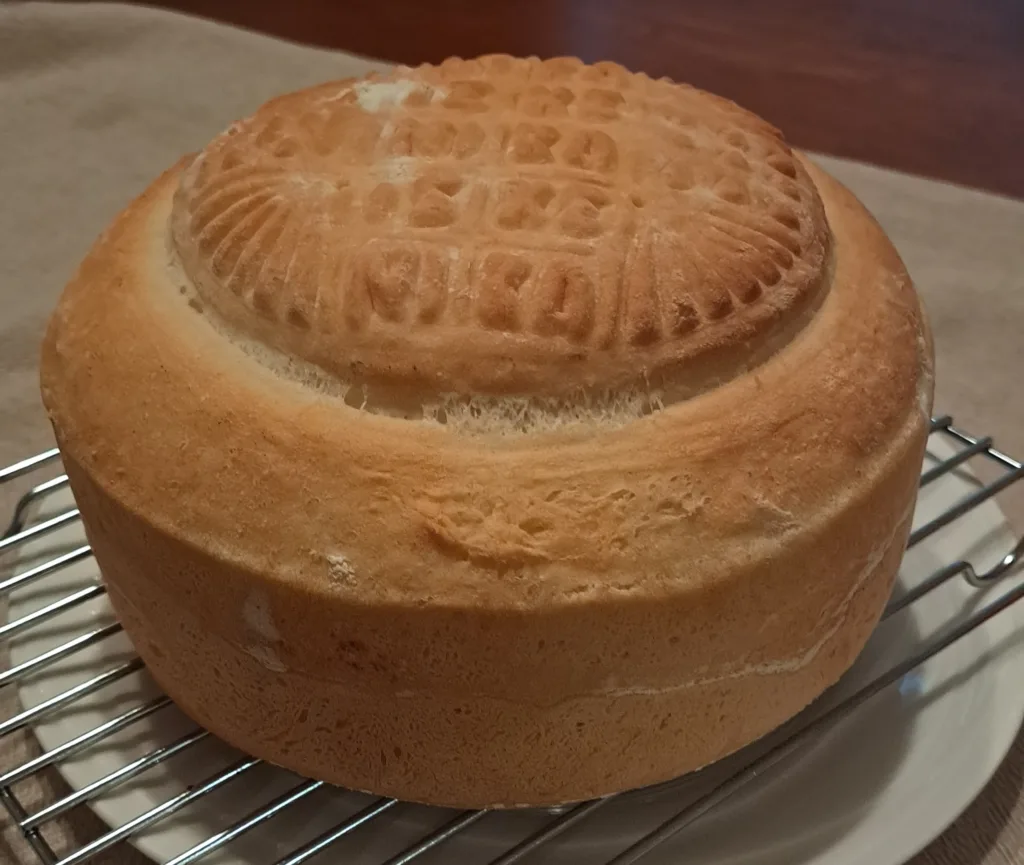
During the service, plates of kolyva and prosphora are placed on designated tables. By the table where the kolyva are, a candle is lit and during the service the priest will read out the names of the departed to pray for them. These names are provided by family members to church helpers before the service.
Learning to bake a prosphoro has always been on my ‘to do’ list. I thought I would eventually learn from my mum who was skilled at it. Sadly, I left it too late. The recipe and tips that I hoped I’d learn are now lost. Her memory has faded and so has her strength.
So, when I found out Father John Choraitis, from the Greek Orthodox Parish of the Prophet Elias – Norwood and Eastern suburbs, was running a session for parishioners I was keen to attend.
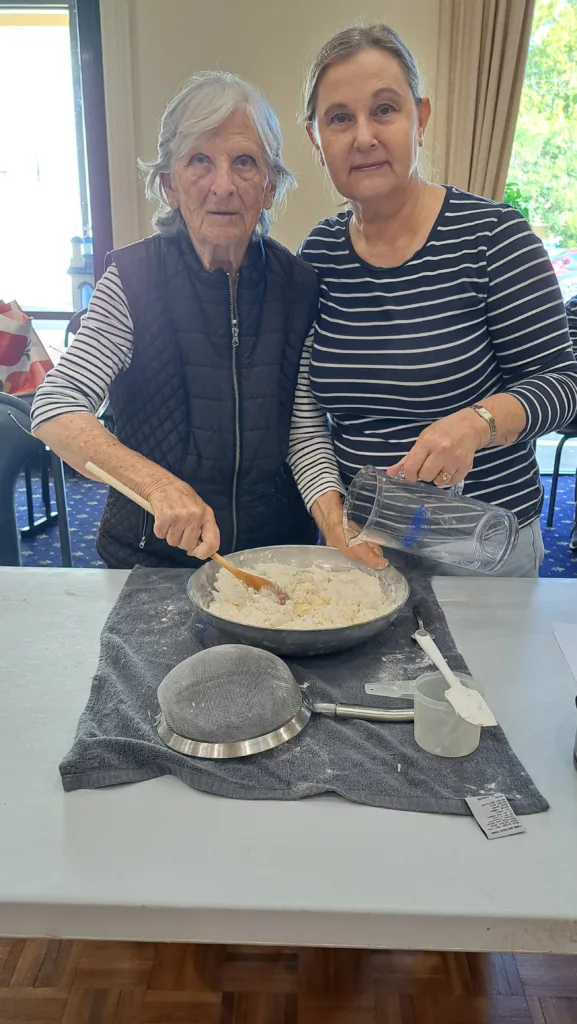
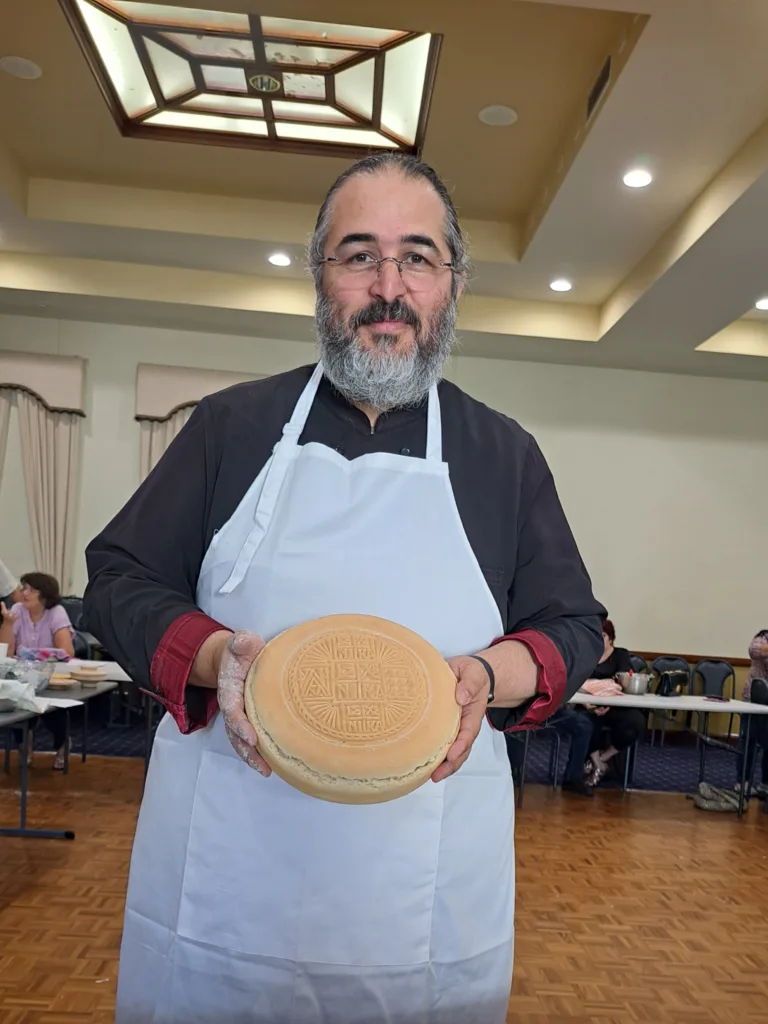
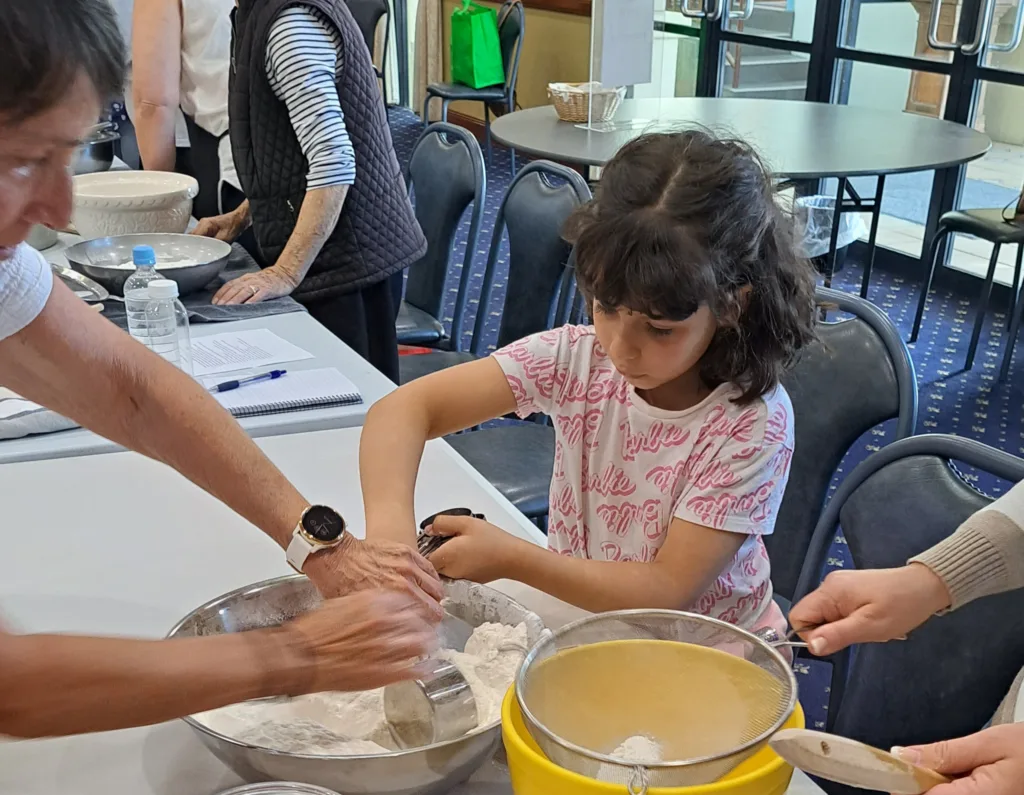
I have made bread countless times so that helped with the kneading part and I did more research on the significance and rituals that involved prayers during the making of prosphora.
Prosphoro: Its meaning and how to make it
Prosphoro is made from wheat flour (white), yeast, salt, and water.
Preparing to make one or two prosphora takes time and requires a spiritual commitment involving prayers. Any member of the church may bake prosphora to take to their church at any service.
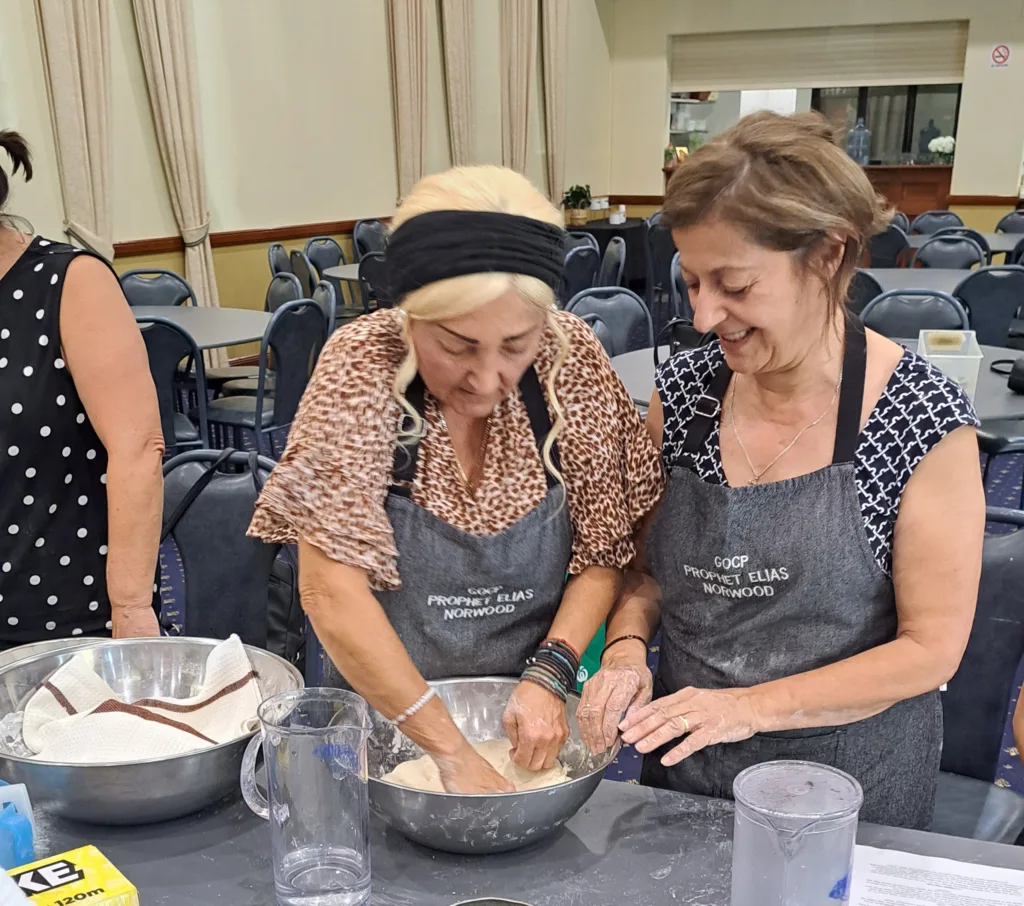
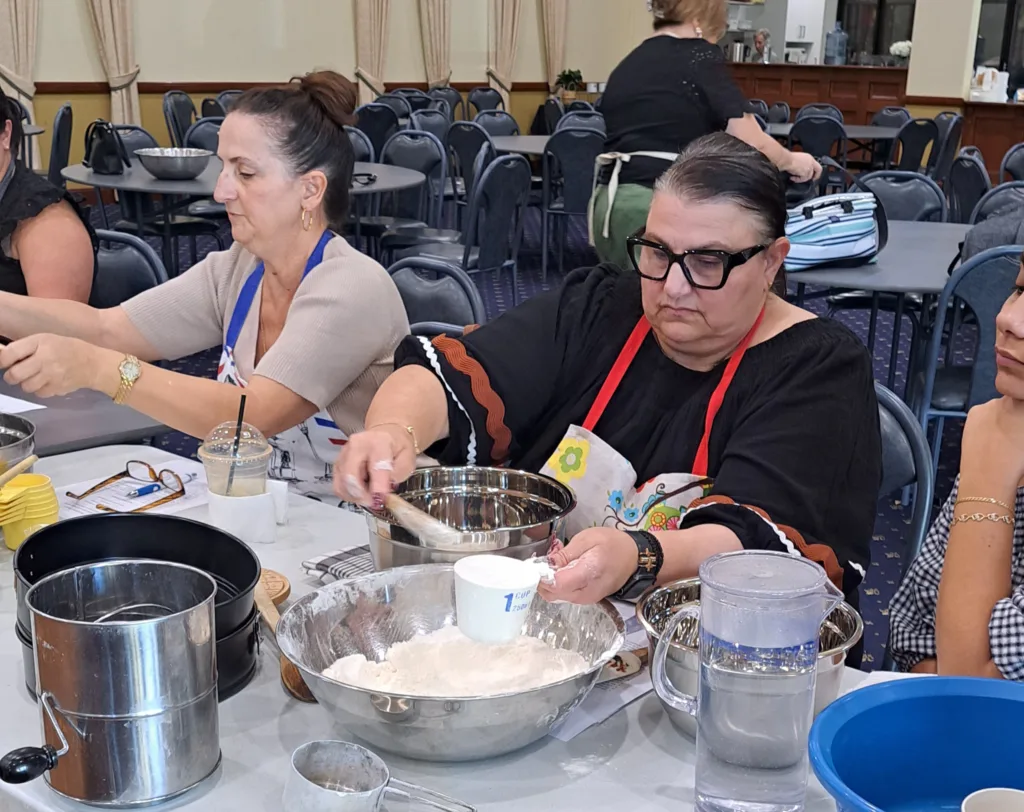
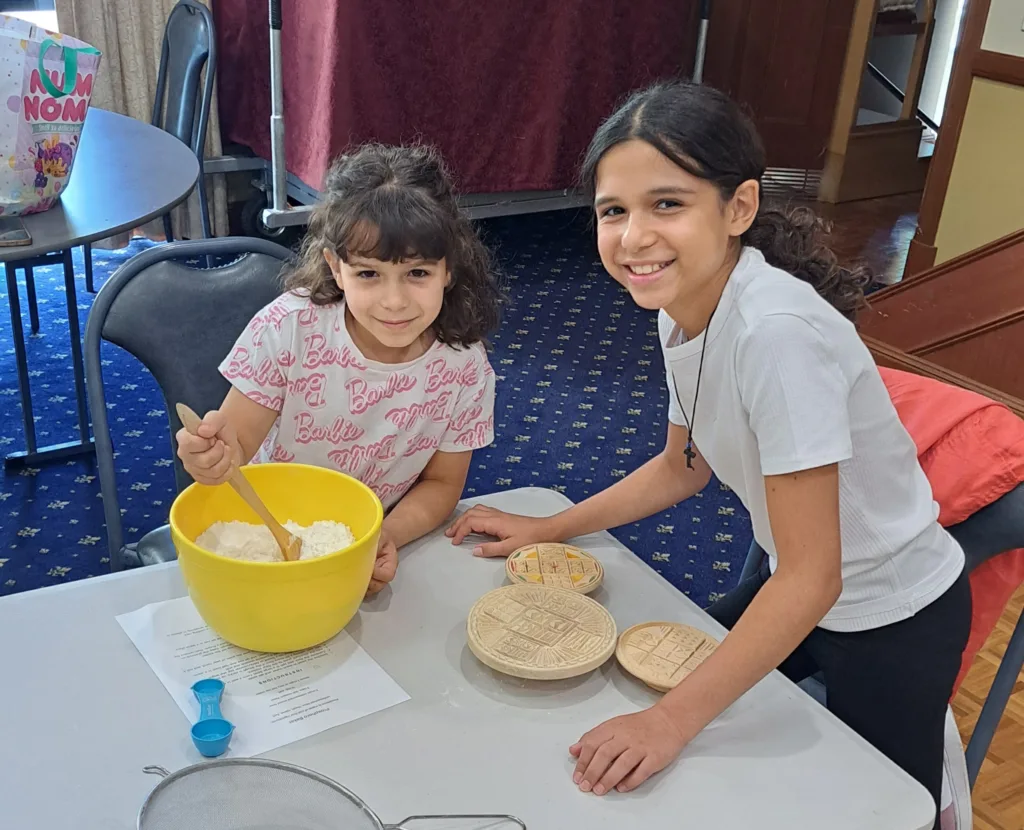
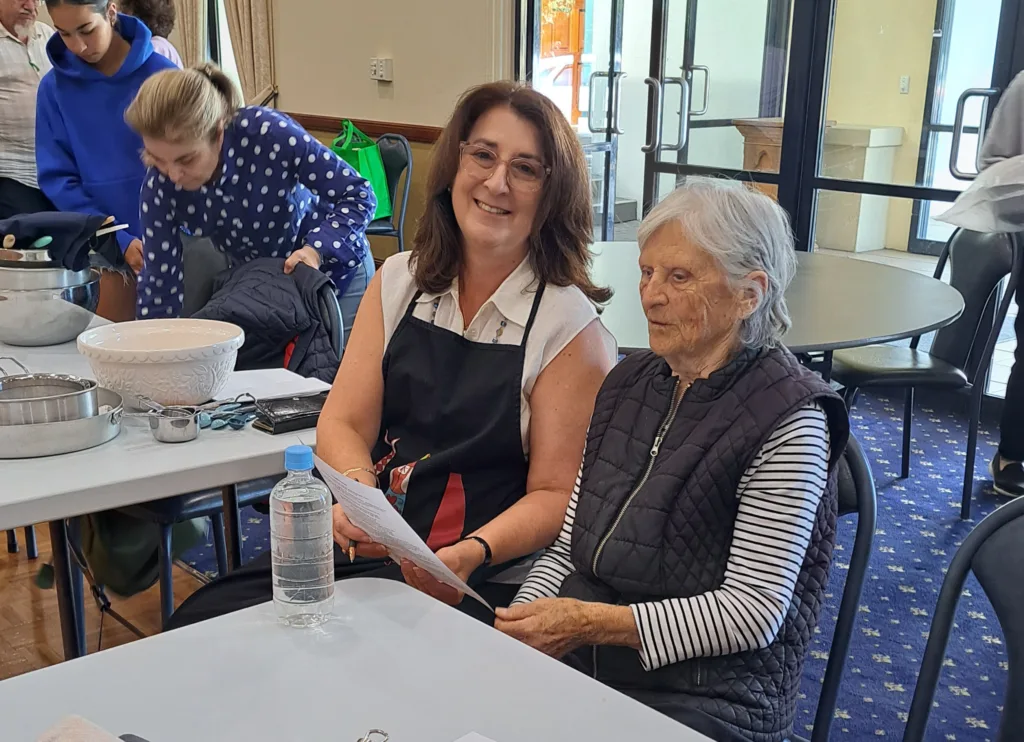
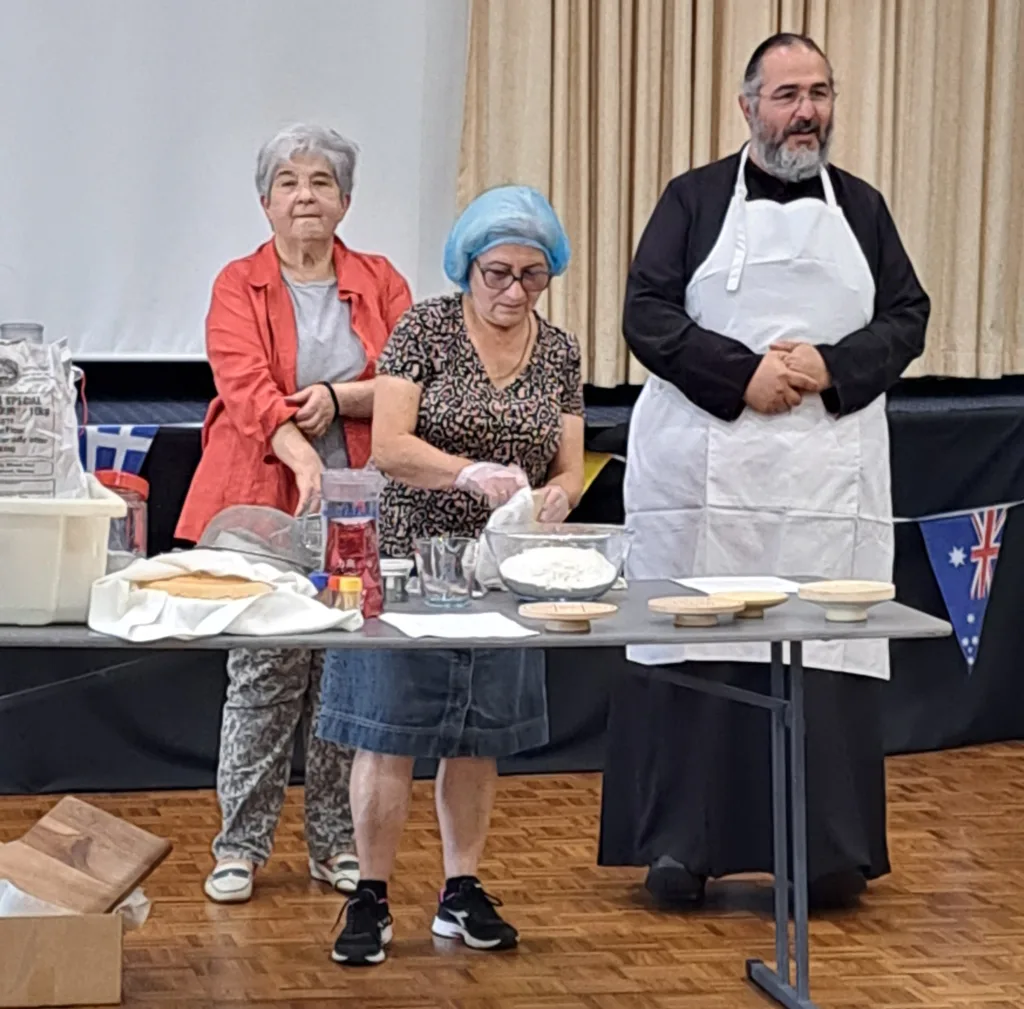
The utensils, ingredients, an icon, candle, incense and prayer instructions are laid out together and with ingredients carefully measured out. The utensils must only be used for the preparation of the prosphoro and not for other cooking purposes. Pouring the water in the flour is done in the sign of the cross.
- Prayers – Praying whilst making prosphoro is part of the process. Some starting and closing prayers can be found on this link.
- Light – A candle can be lit and incense can be used while reciting prayers.
- The ‘sfragitha’ (or wooden stamp) – A circular wooden seal with specially carved motifs of significance. Once the bread has risen, the ‘sfragitha’ is pressed firmly to ensure the motif will be visible once it is baked. This is important as there is a specific way the priest cuts the prosphoro. Seals come in different sizes and many wooden ones are hand carved by monastics.
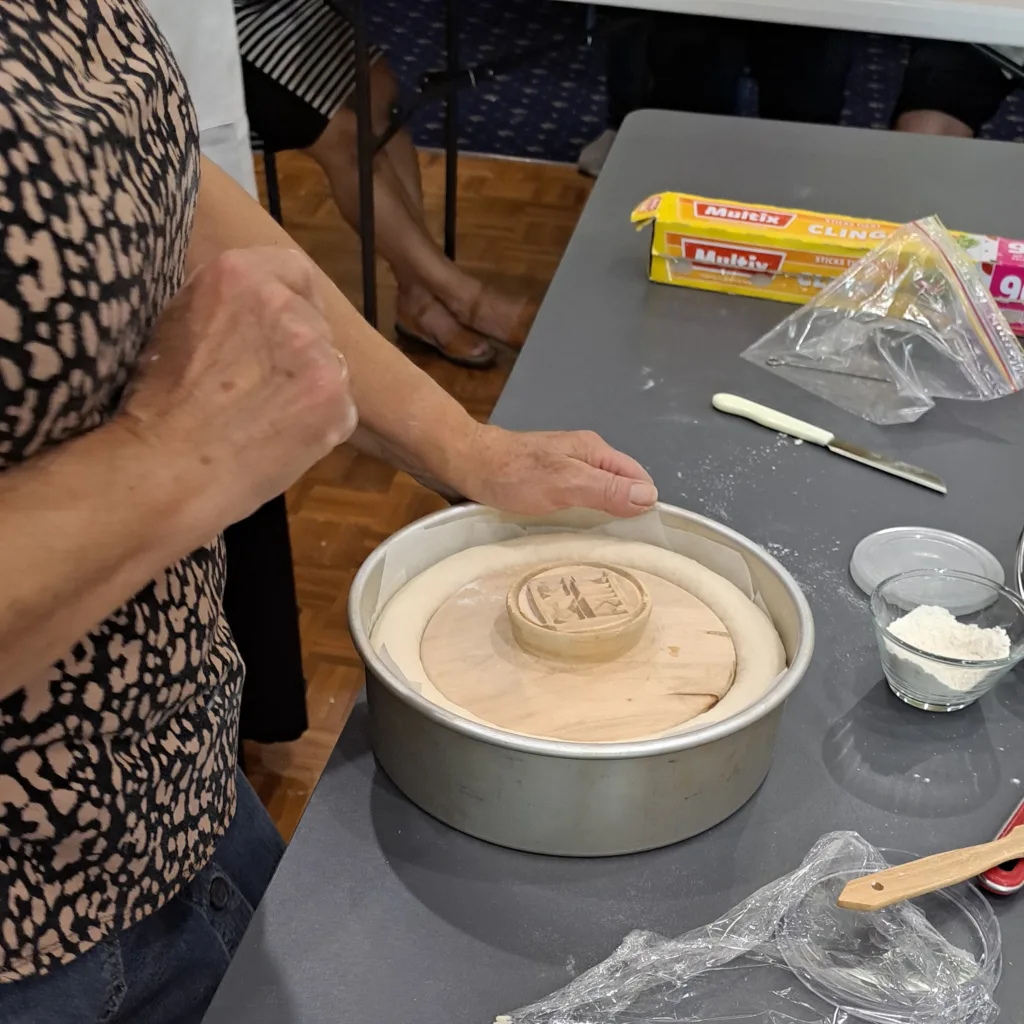
- Piercing the seal – There are many variations and this link explains how to pierce the seal and why.
- Cutting the prosphoro – The priest will cut parts of the prosphoro and are placed on a paten in preparation to be used in the Holy Eucharist. The centre of the seal is cut out first – the square portion that says “IC, XC, NIKA (Jesus Christ Conquers). This becomes the body of Christ and is referred to as the Lamb.
Prosphoro recipe (Bake the day before)
Ingredients
- 5 level cups plain flour
- 1 1/4 teaspoons level dried yeast
- 1 level teaspoon salt
- 2 cups of warm water (keep extra half a cup of warm water extra if needed)
Method
- Dissolve the yeast in the warm water.
- Combine the flour and salt in a large bowl. Create a well in the centre.
- Add the dissolved yeast to the flour mixture.
- Mix well.
- Sprinkle flour on a clean board/table/bench and begin to knead the dough until it becomes smooth and stiff.
- Shape the dough into a round ball and flatten. Place it in a floured baking pan (30cms) or line with baking paper.
- Cover with plastic for 20-30 minutes to allow to rest and rise. If it’s a cold day it may take longer.
- Dip a brush into flour and brush the top of the dough.
- Firmly press the sfragitha in the centre for a few seconds and then take it off.
- Prick the sfragitha.
- Cover the dough with plastic and allow it rest for 20- 30 mins until it has risen.
- Switch oven on 200 degrees Celsius.
- Lower the oven temperature to 180 degrees.
- Bake up to 45- 60 mins so that the bread is firm.
- Place the prosphoro on a cooling rack.
- Once the prosphoro has cooled, cover with a clean cloth to take to church.
Note: There are recipe and procedural variations on prosphoro baking. This is the recipe the writer followed.
